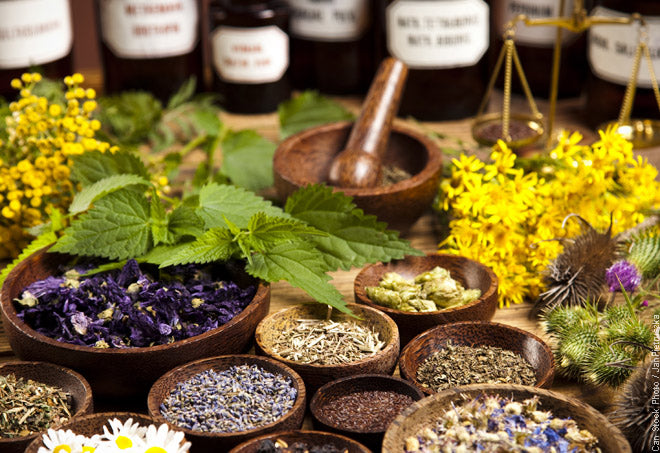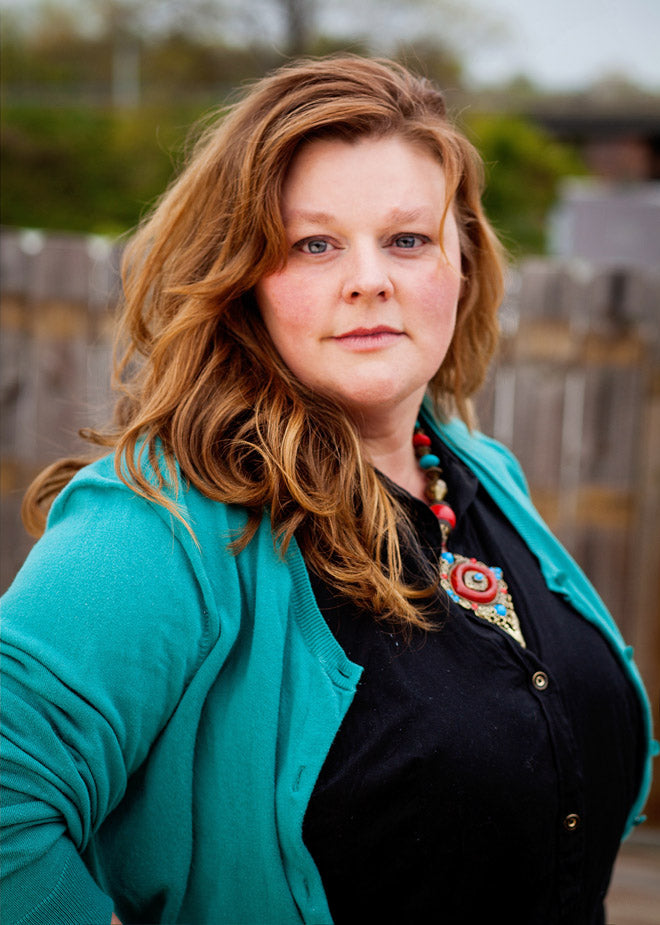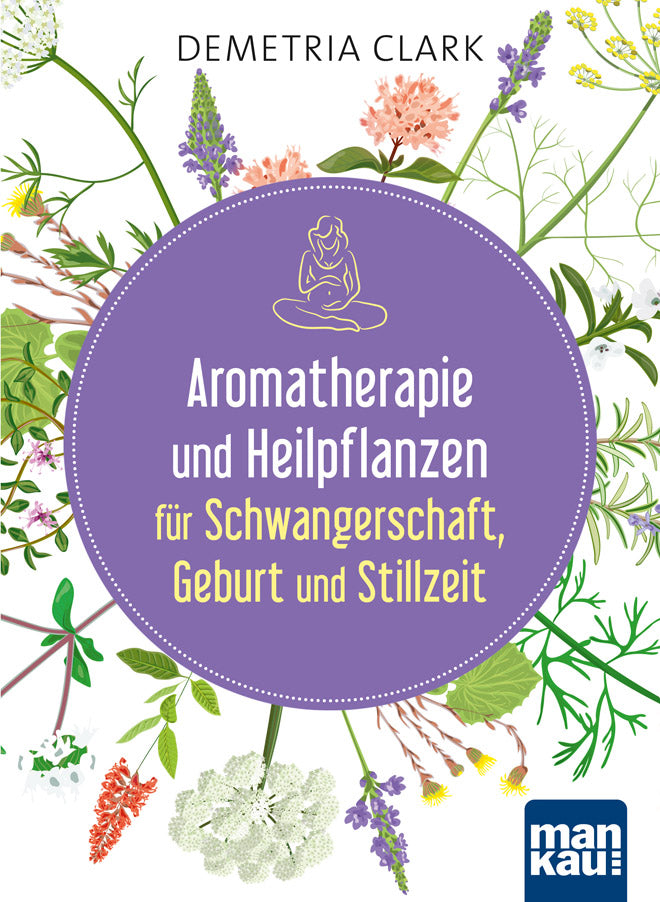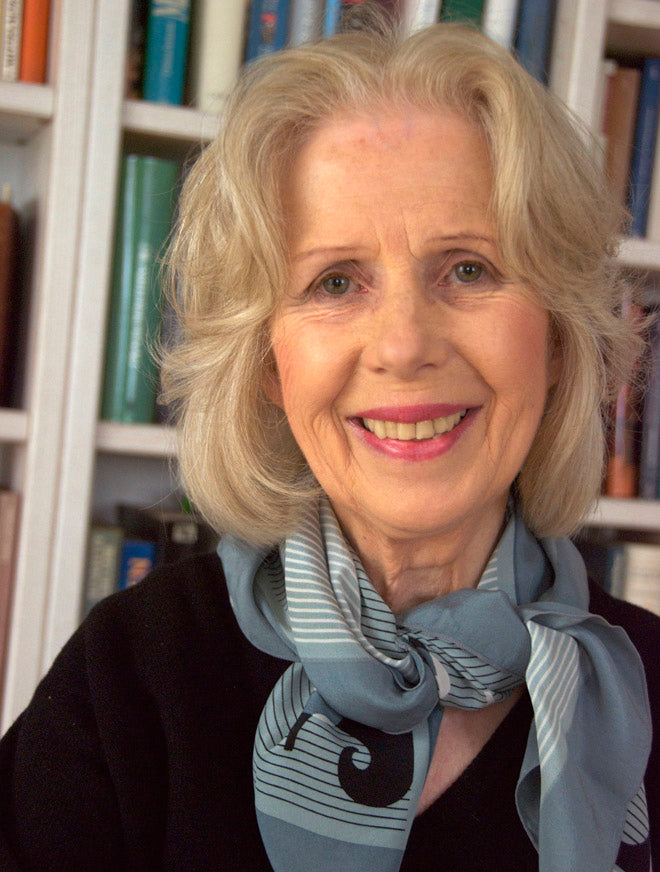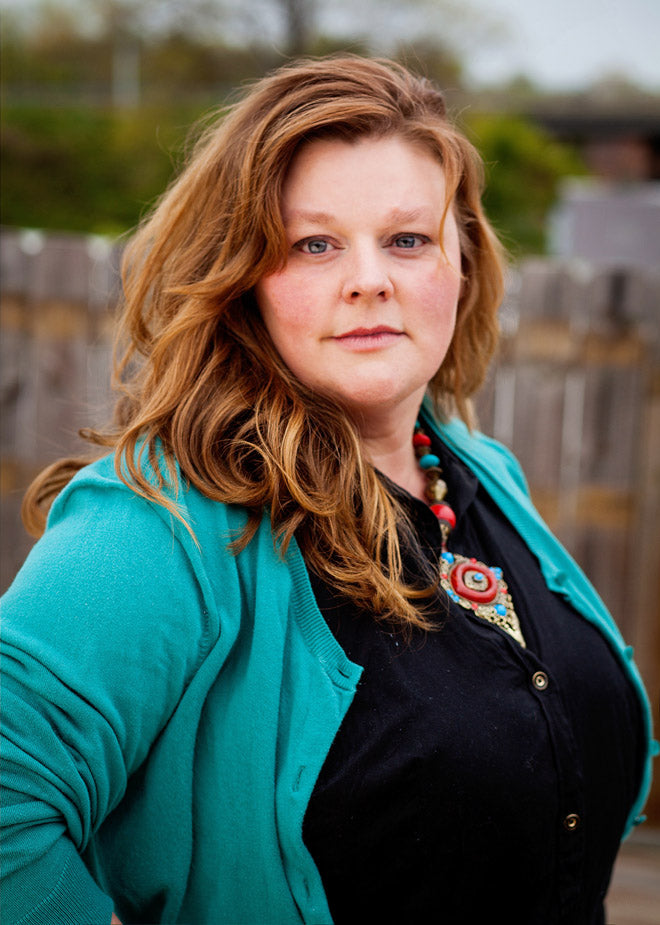
"Help from nature for a very special time of life"
"Help from nature for a very special time of life"
Interview with herbalist and doula Demetria Clark
"With the right knowledge and used with the necessary care, essential oils and medicinal plants can be a great help to expectant mothers with their special needs and complaints. Many remedies can be made yourself and used easily and without any problems, which is why more and more families are turning to herbal medicine."
The herbal expert and doula Demetria Clark, author of the book guide “Aromatherapy and medicinal plants for pregnancy, birth and breastfeeding” – just published for the first time in German – has compiled comprehensive information about essential oils and medicinal herbs from A to Z for this very special phase of life, as well as numerous tried and tested recipes for various concerns.
You have been supporting expectant mothers for over 20 years as a doula and midwife, but also as a herbalist and aromatherapist. What led you to look for alternative solutions to questions about pregnancy and birth?
Demetria Clark: I started my career working in child development and with families, so it was a natural next step. Parents knew I was more inclined towards natural healing and would regularly ask me for advice or suggestions, even though I was only 17 at the time. They inspired me to use my own resources to find solutions to childhood ailments such as teething, skin problems, etc. I was also surrounded by many herbalists and midwives at the time, so I was very exposed to these areas and it was a natural progression for me. I also believed that children are much more open to natural healing because they come from nature and can therefore absorb and adapt to natural remedies more easily, and that most children only need a little stimulation to activate their body's own healing abilities.
There is a growing interest in natural medicine and herbal medicine worldwide. What are the advantages of using medicinal herbs and plants in obstetrics?
Demetria Clark: With the right knowledge, support and care, herbal remedies can make a huge difference to pregnant women. There are many safe herbal remedies for pregnancy, such as morning sickness, sore ligaments, back pain and swollen limbs. These are also easy and straightforward to use, so I think families are turning to these types of remedies more and more. Parents want choices and options, and herbs provide just that. During labour and the postpartum period, herbal remedies can be used extensively to supplement nutrition and strengthen the body, relieving muscle pain, perineal swelling, night sweats and cramping. Many herbal remedies can also be used safely to relax and relieve pain during breastfeeding and labour. Herbs have been used during labour for ages, and I love it when sound research benefits labourers and allows them to control how much intervention they want to make.
The book is intended as a guide for the use of aromatherapy during pregnancy, childbirth, the postpartum period and breastfeeding. How does aromatherapy work and what can it achieve during this special time?
Demetria Clark: I like to think of aromatherapy as a 'trigger point' for treating ailments. It can provide real pain relief, relaxation and emotional empowerment, but it can also help to trigger a response in the body to stimulate the body's own healing abilities. Aromatherapy works through the brain and works locally on problems on the surface of the body, so it offers a really practical approach to triggering a response in the body without having to ingest anything.
Which side effects and health problems during pregnancy can be helped with aromatherapy or herbal and botanical medicine?
Demetria Clark: Oh, there are so many areas where herbs and essential oils have been shown to be effective, such as morning sickness, swelling, water retention, joint or back pain, sore muscles and headaches. Because they are rich in vitamins and minerals, herbs can also be used for nutritional problems such as anemia or vitamin and mineral deficiencies. Other uses include sleep disorders and fatigue, relaxation, restlessness or anxiety, varicose veins on the legs, labia or vagina, hemorrhoids, eczema, PUPPP (pruritic urticarial papules and plaques of pregnancy, which usually causes a very itchy rash on the abdomen), stretch marks and pregnancy acne... The list goes on. When I was writing the book, I asked over a hundred women what topics, needs and complaints I wanted the book to cover - to make sure I didn't leave anything out.
Every mother asks herself what is best for her child. What should pregnant women pay particular attention to if they are interested in using essential oils and medicinal herbs?
Demetria Clark: SAFETY FIRST! To be on the safe side, always read up, research, and ask questions about any remedy. While most over-the-counter pregnancy remedies are considered safe, it's still a good idea to read the package insert carefully. Make sure the information is coming from a reliable herbal source and not a salesperson or multilevel marketing hawker. Visit a trained herbalist or aromatherapist. Textbooks like mine are a good reference for families.
They differentiate between essential oils and medicinal herbs that are safe to use during pregnancy, childbirth and breastfeeding, and those that should be avoided. What are these and what are their effects?
Demetria Clark: I have dedicated separate chapters to this topic in my book because, as I said, I attach great importance to the safety of using oils and herbs. Here are a few examples of popular herbs that I generally advise against using during pregnancy. For example, barberry can induce labor; it can also interfere with the conversion of bilirubin in newborns, increasing the risk of jaundice and impairing liver function. Lady's mantle can also induce contractions and is therefore often used during childbirth to support labor; but for the same reason, it is not recommended to be used during pregnancy. Mugwort, another very valuable medicinal herb, can lead to birth defects or miscarriages and should also be avoided during breastfeeding as a precaution. And if breastfeeding mothers consume coltsfoot, they run the risk of passing liver-damaging pyrrolizidine alkaloids to their child through breast milk. With lovage, however, it depends on the amount: in high doses it induces contractions, but there is nothing wrong with using it as a spice in the kitchen. As you can see, the strengths of medicinal plants can also be their weaknesses if used incorrectly. It is therefore essential to be sufficiently informed.
Aromatherapy and herbal remedies are offered and sold almost everywhere - but it would be easier and better to make your own remedies. What equipment and ingredients are needed for this?
Demetria Clark: Well, essential oils are not really something most people would want to make at home, but herbal remedies are not. My book contains detailed instructions on how to make all kinds of herbal remedies and essential oil blends, so a good textbook is a good way to get started. To start, I recommend getting some herbs and making infusions. It's easy and fun. All you need is a tea strainer, water, and a mason jar or teapot. However, if you want to tackle tinctures, liniments, salves, etc., you will need more ingredients, such as vodka, suitable glass jars, carrier oils (such as olive oil, almond oil, etc.), and beeswax. Most ingredients for herbal recipes are easy to find. Be warned, though: making herbal remedies is fun, and once you start, you won't be able to stop.
The use of aromatherapy and medicinal herbs during and after pregnancy requires a lot of experience and knowledge. Where can expectant mothers acquire this knowledge and who can they turn to if they need support?
Demetria Clark: Read up on the subject, take a class, and then get the plants. A class is usually not that expensive considering you are laying the foundation for a lifetime of knowledge that you can refer back to again and again. Many people who attend my herbal school, Heart of Herbs, also want to learn this knowledge simply to treat their families. Read only professional literature written by industry experts, not publications from distributors or manufacturers. These often have many positive reviews, but many of these may be from their own salespeople. Make sure the book is actually written by an herbalist or aromatherapist. It may be confusing, but it is worth the time! Take the time to familiarize yourself with the plants in your area and get to know the herbalists in your community. Many communities offer herbal walks, book groups, and meetups. Join online groups to connect with others interested in herbs and aromatherapy. If you need more advice, guidance and support, contact a reputable professional. Many colleges can also connect you with students or graduates in your area who can help you.
Book tip:
Demetria Clark: Aromatherapy and medicinal plants for pregnancy, birth and breastfeeding. Tried and tested applications and recipes. Mankau Verlag, 1st edition July 2017, paperback, 16 x 22 cm, full color, 254 pages, 20 euros (D) │ 20.60 euros (A), ISBN 978-3-86374-389-5
Link recommendations:
More information about the guidebook "Aromatherapy and medicinal plants for pregnancy, birth and breastfeeding"
More about author, doula and herbalist Demetria Clark

